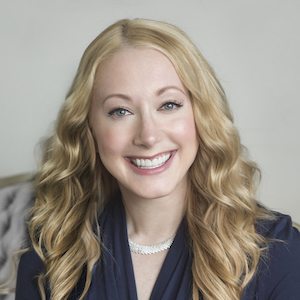
Self-awareness is an advantage in business and other aspects of life, organizational psychologist and author Tasha Eurich said in an April 16 seminar at the American Gem Society (AGS) Conclave in Austin, Texas.
“My team found that people who are self-aware are more successful, communicate better, and are less likely to lie, cheat, and steal,” she said. “Self-aware parents raise more mature, less narcissistic children.”
There are two kinds of self-awareness, said Eurich: knowing who you are and knowing how others see you. The former is more common than the latter, she noted.
Although nearly all people think they’re self-aware, only 10% or 15% actually are, Eurich said.
“Most people tend to believe they are above average on almost every socially desirable characteristic,” she said. “So, on a good day, 80% of us are lying to ourselves about whether we’re lying to ourselves.”
The best leaders are constantly trying to become more self-aware, according to Eurich.
“The moment we start thinking that we’re there when it comes to self-awareness, that’s when the journey ends. The biggest barrier to self-awareness is thinking that we’re already self-aware.”
She said many business owners and managers are surrounded by “walls, mirrors, and liars,” who simply tell them what they want to hear.
“How do you act when someone brings you something that isn’t positive information?” Eurich asked, noting that supervisors should not only request honest feedback but relish it. “In every organization, the boss can’t know everything.”
She advised session attendees to “take 30 seconds and find one or two people in your world of work that can serve as your loving critic. Ask them how you are getting in your own way.”
Managers need to know how to express vulnerability, she added.
“In the next week,” Eurich said, “find one chance to spotlight one imperfection [to employees]…. If you’re real, people will like you.”
When you’re having a dispute with somebody, it helps to understand the other person’s perspective, she said.
“Zoom in on how you feel, what are you thinking and feeling about this person,” she said. “Then think about: Is there any kind of situational thing that might be going on with this person?”
(Photo courtesy of AGS)
- Subscribe to the JCK News Daily
- Subscribe to the JCK Special Report
- Follow JCK on Instagram: @jckmagazine
- Follow JCK on X: @jckmagazine
- Follow JCK on Facebook: @jckmagazine







